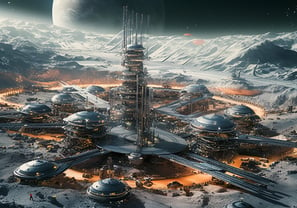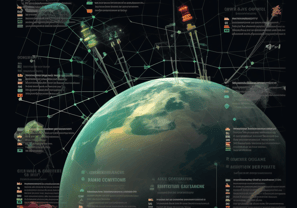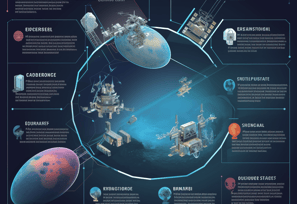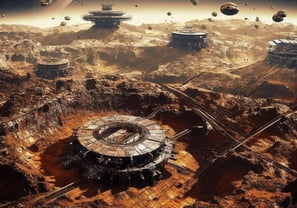RESEARCH
Ensuring the persistence of life


LFI is dedicated to propelling life's evolutionary journey towards the cosmos, a leap towards boundless possibilities while offsetting planetary and technological risks. But this evolutionary step harbours its own unknowable threats and consequences. Despite the urgency, cautious progress is imperative. This transition prompts profound moral, ethical, political, metaphysical, and epistemological quandaries. Many of the decisions we make or overlook in the coming decades and centuries are likely irreversible, leaving an enduring mark on our cosmic course.
Focusing on the future, Exploratory Engineering is a discipline concerned with the conceptualisation and examination of presently unrealisable technologies. With further development in science and technology, these concepts could become feasible. It serves as a means to anticipate and steer future technological advancements, based on a solid foundation of core physical theories.


Space Frontier Economics delves into the interworking of business models, financial systems, incentives, hurdles, macroeconomic factors, and regulations involved in the development of the extra-planetary economy. As a sphere of research, it aims to equip decision-makers and reformers with the knowledge to judiciously allocate resources and plot the trajectory for economic expansion.


The immediate financial commitment needed to instigate self-sustaining development of an attractive space ecosystem heavily relies on the infrastructure put in the forefront; market network effects will exhibit substantial disparity. Data gathered through exploration and research will be crucial for enabling and honing the myriad commercial activities projected across the solar system.


Edge-technologies, although in their early stages, will crucially relax limitations that currently define and restrict the expansion of the space industry. Edge-discoveries alter the terrain and potential of what can be fundamentally achieved. Diligent consideration of the influence of these nascent technologies and transformative discoveries will inform and expedite our progress.




Creating a spacecraft for an exceedingly long-term mission demands deep understanding of the aging of subsystems due to usage and space's harsh conditions. This encompasses power, propulsion, radiation shielding, thermal management, structural integrity, communication, onboard computing, navigation, and self-replication/repair. Each element requires innovative solutions to ensure sustained functionality in the cosmos.


Life's persistence beyond Earth hinges significantly on in-orbit accelerators. They offer cost-effective propulsion for spacecraft, paving the way for interstellar travel, resource acquisition, and potential habitation of remote planets. This ensures life's ongoing growth and reach within the observable universe.


Automated In-Situ Resource Utilisation (ISRU) heralds unprecedented strides in solar system exploration and habitation, despite key challenges. With resources ranging from Mercury's solar array potential, the Moon's water reserves, Mars' regolith, asteroidal metals and water, to the gas giants' atmospheres. Mastering robust, autonomous systems could establish a self-sustaining human presence across the solar system.
